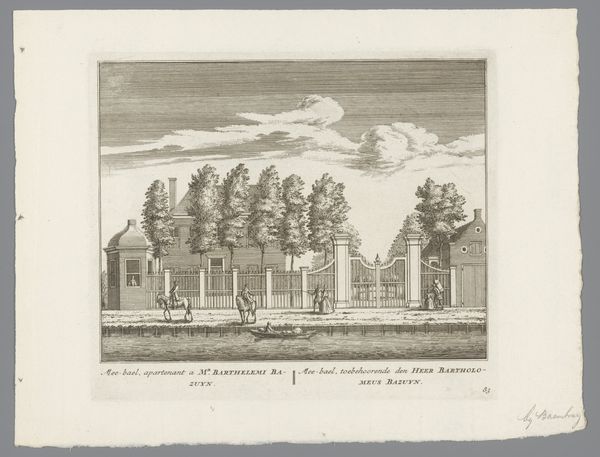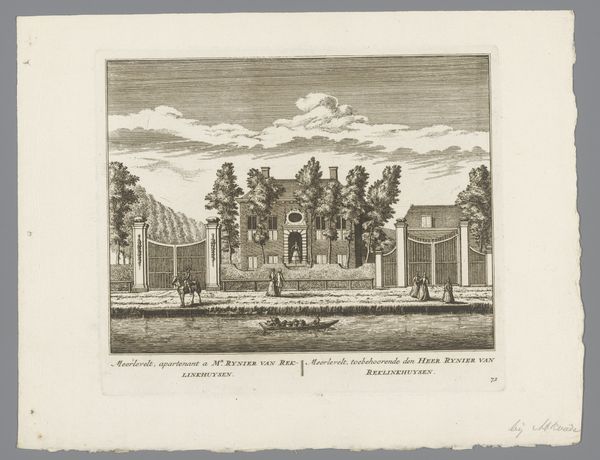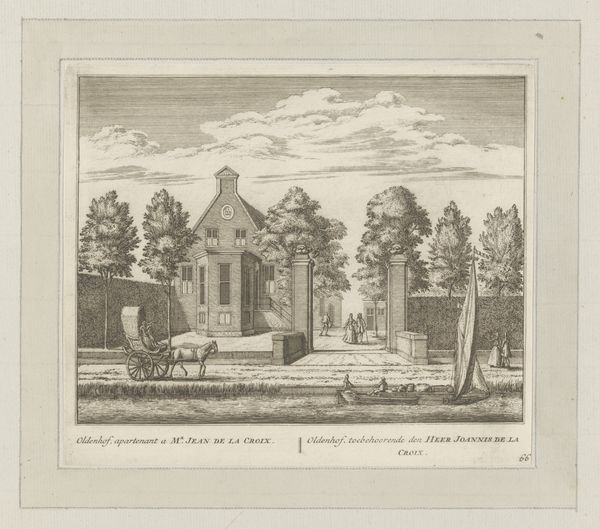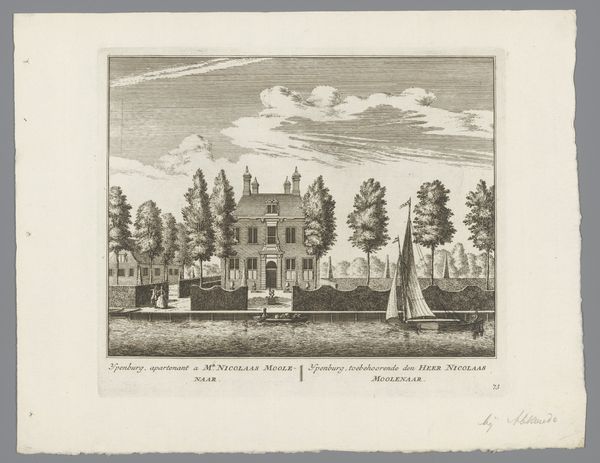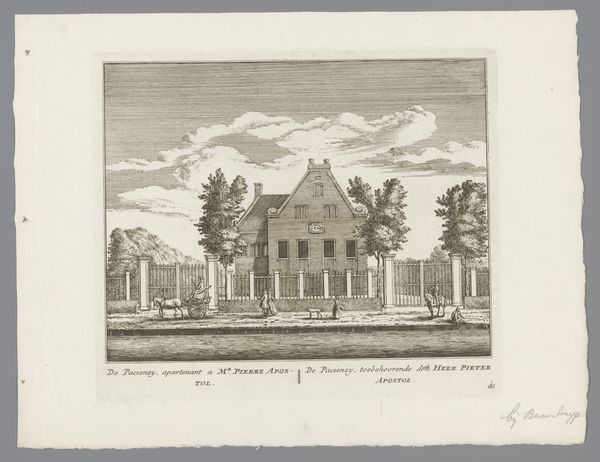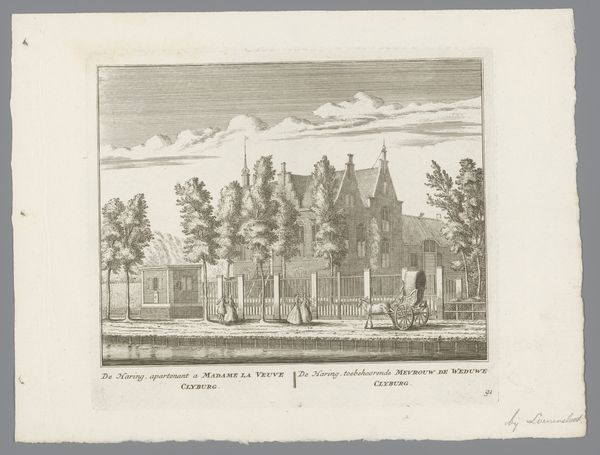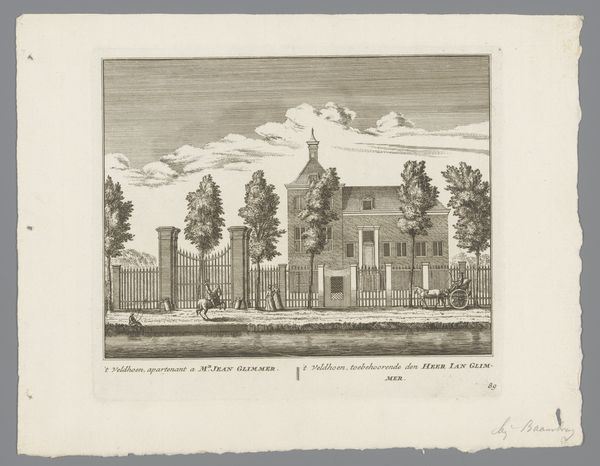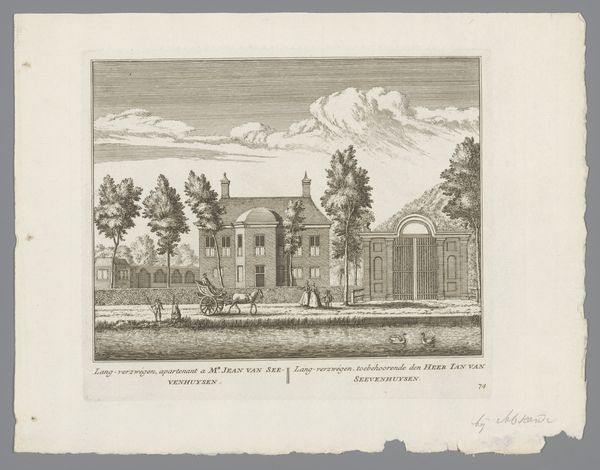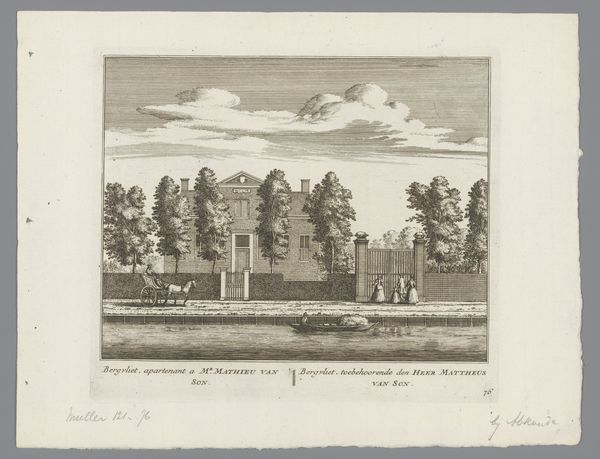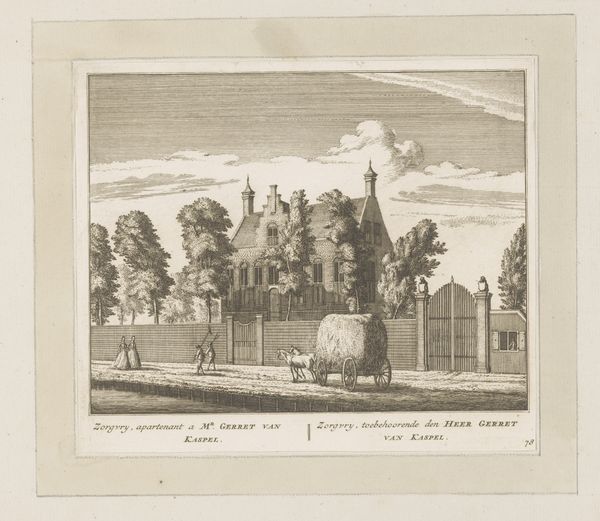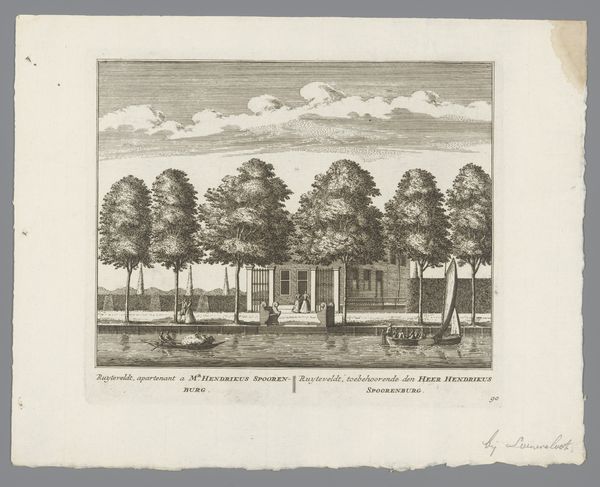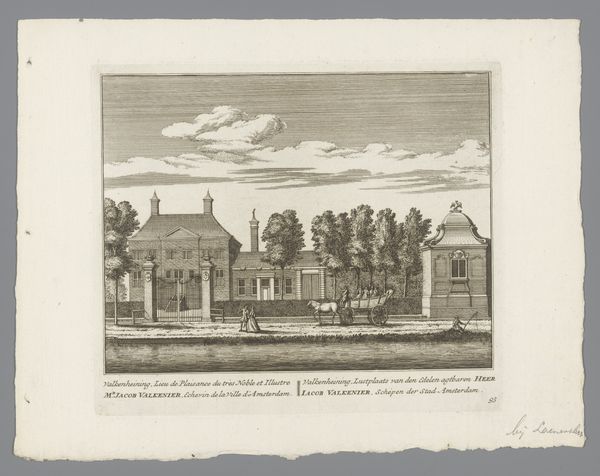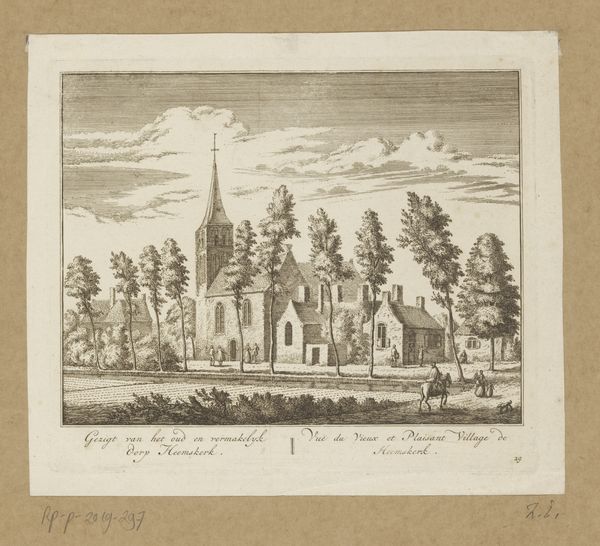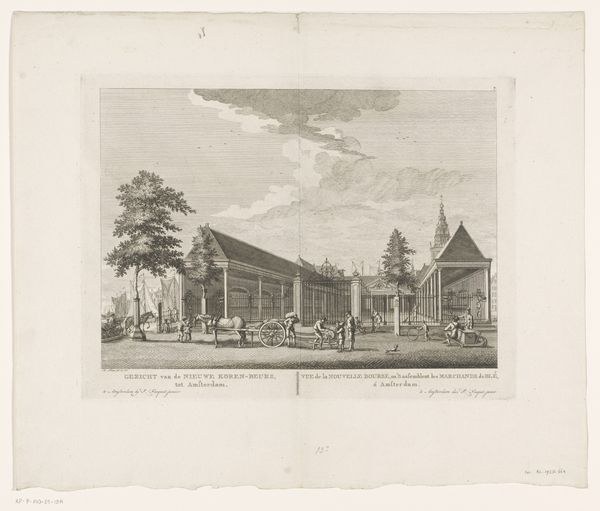
drawing, print, etching
#
drawing
#
baroque
#
dutch-golden-age
# print
#
etching
#
landscape
#
cityscape
Dimensions: height 172 mm, width 200 mm
Copyright: Rijks Museum: Open Domain
Abraham Rademaker made this print of Middelvaart, near Baambrugge, using etching. It’s a process that democratized image-making in the early modern period. Rademaker would have coated a copper plate with wax, then scratched his composition into it with a needle, exposing the metal. Immersing the plate in acid then bit away the lines, allowing them to hold ink. When pressed to paper, a reversed image appears. Here, the crisp lines and controlled textures create a convincing sense of depth and light. The estate Middelvaart appears solid and serene, a testament to the owner’s wealth, while the detailed rendering of figures and the landscape highlight the property’s integration into the surrounding community. Although printmaking might seem like a purely commercial process, this piece and others like it helped to define the Dutch landscape for a wide audience, shaping a shared sense of place and identity. And of course, an etching like this is also a product of labor, both Rademaker’s and the many others involved in the printing and distribution of his work. It’s a perfect example of how art, even in its most seemingly straightforward form, is deeply intertwined with social and economic forces.
Comments
No comments
Be the first to comment and join the conversation on the ultimate creative platform.
